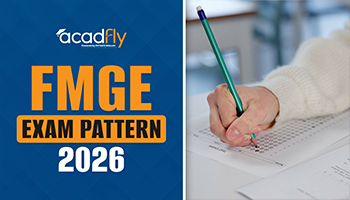

When planning to study abroad, particularly in the UK, one common question that arises is: "How much of a gap is accepted for study in the UK?" Many students take a gap year or even longer between their last educational qualification and applying for further studies. Understanding the UK University Gap Year Policy and how it affects your chances of securing admission is crucial. This article delves into the intricacies of the Study of UK Gap Years Accepted policy, the UK Student Visa Gap Year Rules, and the Gap Year Guidelines for UK Universities.
What do you mean by a Gap Year?
A gap year typically refers to a break taken by students after completing their last educational qualification and before enrolling in the next one. This break can be used for a variety of purposes, such as gaining work experience, traveling, volunteering, or simply taking a break to decide on future educational and career paths.
Why Do Students Take Gap Years?
Gap years can be incredibly beneficial for students. Here are some common reasons why students take gap years:
Personal Growth: A gap year provides an opportunity for self-discovery and personal development. Students can explore their interests, gain life experience, and return to academics with renewed focus.
Work Experience: Many students use this time to gain work experience in their field of interest. This experience can be valuable when applying for higher studies or jobs in the future.
Travel and Volunteering: Traveling or volunteering during a gap year can provide a broader perspective on life and help students develop a global mindset.
Financial Reasons: Some students take a gap year to work and save money to fund their studies, especially when planning to study abroad.
UK University Gap Year Policy: An Overview
When it comes to the UK University Gap Year Policy, universities in the UK generally accept students who have taken a gap year. However, the length and reason for the gap can play a significant role in the admission process.
Factors Affecting Gap Year Acceptance
Length of the Gap: The acceptable length of a gap year can vary between universities and courses. Generally, a gap of 1-2 years is widely accepted across most UK universities. Longer gaps may require a more detailed explanation.
Reason for the Gap: The reason behind taking a gap year is crucial. If the gap was taken for valid reasons such as gaining work experience, volunteering, or improving language skills, it is usually viewed positively by admission officers. However, if the gap is unexplained or poorly justified, it may raise concerns.
Course and University: Some courses, particularly those that are competitive, might be less lenient about long gaps. Similarly, top-ranking universities may have stricter gap year policies compared to others.
How to Justify a Gap Year
When applying to UK universities, it’s essential to justify your gap year convincingly. Here’s how you can do it:
Prepare a Statement: Write a compelling personal statement explaining what you did during the gap year and how it has prepared you for the course you’re applying for.
Provide Evidence: If possible, provide evidence of what you did during your gap year, such as certificates of work experience, volunteer work, or language courses.
Show Relevance: Make sure to highlight how the gap year activities are relevant to your chosen course and how they have enhanced your skills and knowledge.
Acceptable Gap Years for UK Study
Understanding what constitutes an Acceptable Gap Year for UK Study is vital. Most universities in the UK are flexible with gaps, provided they are well-justified and the applicant can demonstrate that they have been productive during this time.
Typical Acceptable Gap Year Activities
Work Experience: Engaging in work relevant to your field of study can be an excellent way to spend a gap year. This not only adds value to your application but also demonstrates commitment to your chosen field.
Further Education: Taking courses or certifications during a gap year can be beneficial, especially if they are related to the subject you plan to study.
Volunteering: Volunteering shows initiative, compassion, and a willingness to contribute to society. It’s highly regarded by UK universities.
Travel: Traveling can be acceptable if it has contributed to your personal growth or global understanding. It’s important to articulate how the travel experience has enriched your perspective.
Unacceptable Gap Year Reasons
While UK universities are generally accommodating, certain gap year activities may not be viewed favorably:
Lack of Purpose: If you took a gap year without any clear purpose or productive activities, this could negatively impact your application.
Unexplained Gaps: Failing to explain the reasons for your gap year can be a red flag for admission officers.
Gaps Due to Poor Academic Performance: If the gap year was taken due to repeated academic failures, this might be viewed negatively unless you can show significant improvement during the gap.
UK Student Visa Gap Year Rules
If you have taken a gap year and are applying for a UK student visa, you must be aware of the UK Student Visa Gap Year Rules. The UK Home Office does consider gap years when assessing visa applications.
Key Considerations for UK Student Visa Applications
Continuous Study Requirement: The UK student visa typically requires applicants to show a continuous study history. However, reasonable gaps are allowed, especially if they are justified and aligned with your academic and career goals.
Documenting the Gap: When applying for a visa, be prepared to provide documentation explaining the gap year. This can include reference letters from employers, certificates from courses taken, or a personal statement.
Visa Interview: During your visa interview, you may be asked to explain your gap year. It’s essential to be honest and clear about how the gap year has benefited you and why you are now ready to resume your studies.
Impact on Visa Approval: A well-justified and documented gap year is unlikely to negatively impact your visa application. However, unexplained or poorly justified gaps can lead to delays or even refusal of your visa.
Gap Year Guidelines for UK Universities
Different universities may have specific Gap Year Guidelines for UK Universities. It’s important to research the university you are applying to and understand their stance on gap years.
General Guidelines
Research University Policies: Start by researching the gap year policies of the universities you’re interested in. This information is usually available on their official websites.
Consult Admission Officers: If you have specific concerns about your gap year, it’s a good idea to consult with admission officers. They can provide insights into how your application will be viewed.
Prepare Your Application: Tailor your application to address your gap year. Include relevant experiences, skills gained, and how the gap year has prepared you for university life.
Stay Updated: Universities may update their gap year policies, so make sure you stay informed about any changes that could affect your application.
University-Specific Policies
Oxbridge (Oxford and Cambridge): These universities are known for their rigorous admission process. While they do accept gap years, the reasons must be compelling and well-documented.
Russell Group Universities: These top-tier universities generally accept gap years but expect applicants to demonstrate how the gap year has added value to their profile.
Other UK Universities: Many other UK universities are more flexible with gap years, especially if the applicant can show that the gap was used productively.
Step-by-Step Guide to Applying After a Gap Year
Applying to study in the UK after a gap year involves careful planning and preparation. Here’s a step-by-step guide:
Step 1: Research and Select Universities
Start by researching universities and courses that interest you. Pay special attention to their gap year policies and select those that are more accommodating.
Step 2: Prepare Your Documents
Gather all necessary documents, including your academic records, work experience certificates, and any other evidence that supports your gap year activities.
Step 3: Write a Strong Personal Statement
Your statement is your chance to explain your gap year. Highlight how the experiences during this time have prepared you for the course you’re applying for.
Step 4: Submit Your Application
Submit your application through UCAS (Universities and Colleges Admissions Service) or directly to the university. Make sure your application is complete and all documents are included.
Step 5: Prepare for Interviews
Some courses may require an interview as part of the application process. Be prepared to discuss your gap year and how it has impacted your decision to pursue further studies.
Step 6: Apply for a UK Student Visa
Once you receive an offer, you can apply for a UK student visa. Ensure that you provide all necessary documentation related to your gap year.
Step 7: Prepare for University Life
Finally, prepare yourself for university life in the UK. This includes arranging accommodation, budgeting, and understanding the cultural differences you may encounter.
Frequently Asked Questions
1. How much gap is acceptable for study in the UK?
2. Can a gap year affect my chances of getting a UK student visa?
3. Do all UK universities accept students with gap years?
4. How should I justify my gap year in my UK university application?
5. Is there a limit to the number of gap years accepted for UK study?









